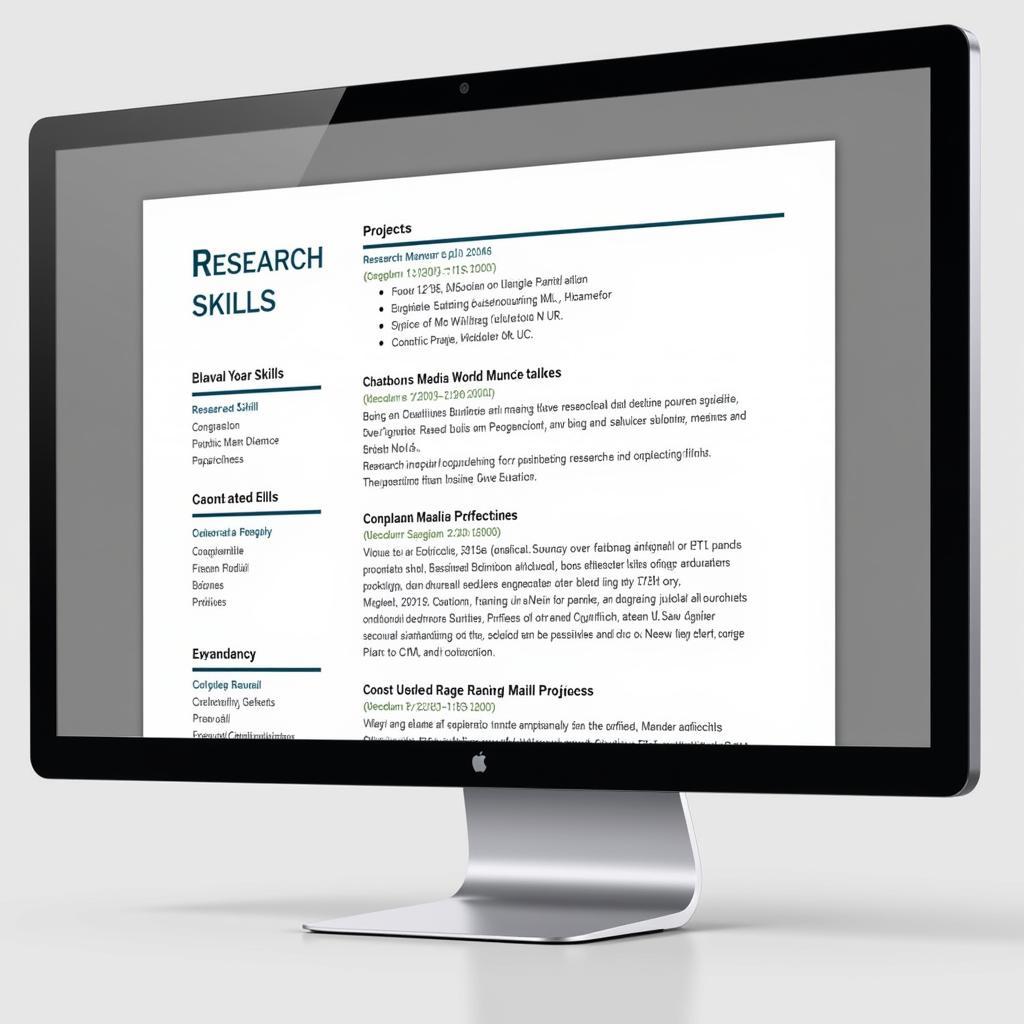So, you’ve just tossed your graduation cap in the air, diploma in hand, and the world of research is calling your name. But wait, how do you actually get research experience after graduation? It’s a classic catch-22: you need experience to land a research position, but you need a research position to gain experience.
Don’t despair! There are plenty of pathways to break into the world of research, even without years of lab work under your belt. Whether you’re passionate about psychology, astrophysics, or anything in between, this guide will equip you with the tools and strategies to launch your research career.
Finding Your Research Niche
Identifying Your Interests and Skills
The first step is pinpointing your passions and strengths. What subjects ignited your curiosity during your studies? What skills did you excel in?
- Reflect on your academic journey: Were there particular courses, projects, or research papers that captivated your interest?
- Consider your skills: Are you a whiz at data analysis? A creative thinker? A meticulous writer?
- Explore different research fields: Research extends far beyond the lab. Don’t limit yourself to your undergraduate major – consider interdisciplinary fields that pique your interest.
 Exploring Research Interests
Exploring Research Interests
Networking with Researchers
Networking is crucial in any field, but it’s especially important in research. Reach out to professors, researchers, and professionals in your field of interest.
- Attend conferences and seminars: These events are excellent opportunities to learn about cutting-edge research and connect with experts.
- Join professional organizations: Many disciplines have professional organizations that host networking events and provide resources for aspiring researchers.
- Use LinkedIn: Connect with researchers and join groups related to your interests.
Gaining Practical Experience
Volunteering in Research Labs
Volunteering is an invaluable way to gain hands-on research experience. While it might not be a paid position, it offers a chance to learn essential research skills, contribute to ongoing projects, and build relationships with experienced researchers.
- Contact professors whose research aligns with your interests: Express your enthusiasm and highlight relevant skills from your academic background.
- Be persistent but polite: Professors receive numerous requests, so don’t be discouraged if you don’t hear back immediately.
 Volunteering in a Research Lab
Volunteering in a Research Lab
Pursuing Research-Based Internships
Internships provide structured research experiences, often with a stipend or academic credit. Many organizations, universities, and government agencies offer research internships specifically for recent graduates.
- Search online internship databases: Websites like Indeed, LinkedIn, and specific research-focused platforms often list internships.
- Check university career centers: Many universities have dedicated career centers that assist students and alumni in finding research opportunities.
Participating in Citizen Science Projects
Citizen science projects engage the public in contributing to real-world research. These projects often involve collecting data, analyzing images, or transcribing historical documents.
- Explore online platforms: Websites like Zooniverse and SciStarter host a wide range of citizen science projects across various disciplines.
Enhancing Your Profile
Building a Strong Resume and Cover Letter
Tailor your resume and cover letter to highlight your research skills and experiences. Quantify your contributions whenever possible, using metrics and specific examples.
- Showcase your skills: Include relevant technical skills, software proficiency, data analysis methods, and research methodologies.
- Highlight transferable skills: Even if you lack formal research experience, emphasize transferable skills like critical thinking, problem-solving, and communication.
 Crafting a Strong Research Resume
Crafting a Strong Research Resume
Presenting at Conferences and Publishing Your Work
Presenting your research at conferences and publishing in academic journals demonstrates your expertise and commitment to the field.
- Start small: Consider presenting at local or regional conferences before submitting to larger, international ones.
- Collaborate with researchers: Co-authoring papers with experienced researchers can increase your chances of getting published.
Considering Postgraduate Studies
While not mandatory, a master’s or doctoral degree can significantly enhance your research career prospects.
Conclusion
Securing research experience after graduation requires initiative, persistence, and a genuine passion for discovery. By exploring diverse avenues like volunteering, internships, and citizen science projects, you can gain practical experience, expand your network, and strengthen your research profile. Remember, the path to a research career is a marathon, not a sprint. Embrace the challenges, celebrate your successes, and never stop seeking opportunities to learn and grow.
FAQs
1. How important is it to have research experience before applying to graduate school?
While not always mandatory, having research experience demonstrates your commitment to the field and can significantly strengthen your application.
2. Is it possible to transition into a research career after working in a different field?
Absolutely! Many researchers have diverse career backgrounds. Focus on transferable skills and consider pursuing additional education or training if necessary.
3. What are some resources for finding research funding opportunities?
Organizations like the National Science Foundation (NSF), National Institutes of Health (NIH), and private foundations offer grants and fellowships for research projects.
Need further guidance on your research journey? Our team at Paranormal Research is here to support your endeavors. Contact us at 0904826292, email us at research@gmail.com, or visit our office at No. 31, Alley 142/7, P. Phú Viên, Bồ Đề, Long Biên, Hà Nội, Việt Nam. Our dedicated team is available 24/7 to address your inquiries and provide personalized assistance.